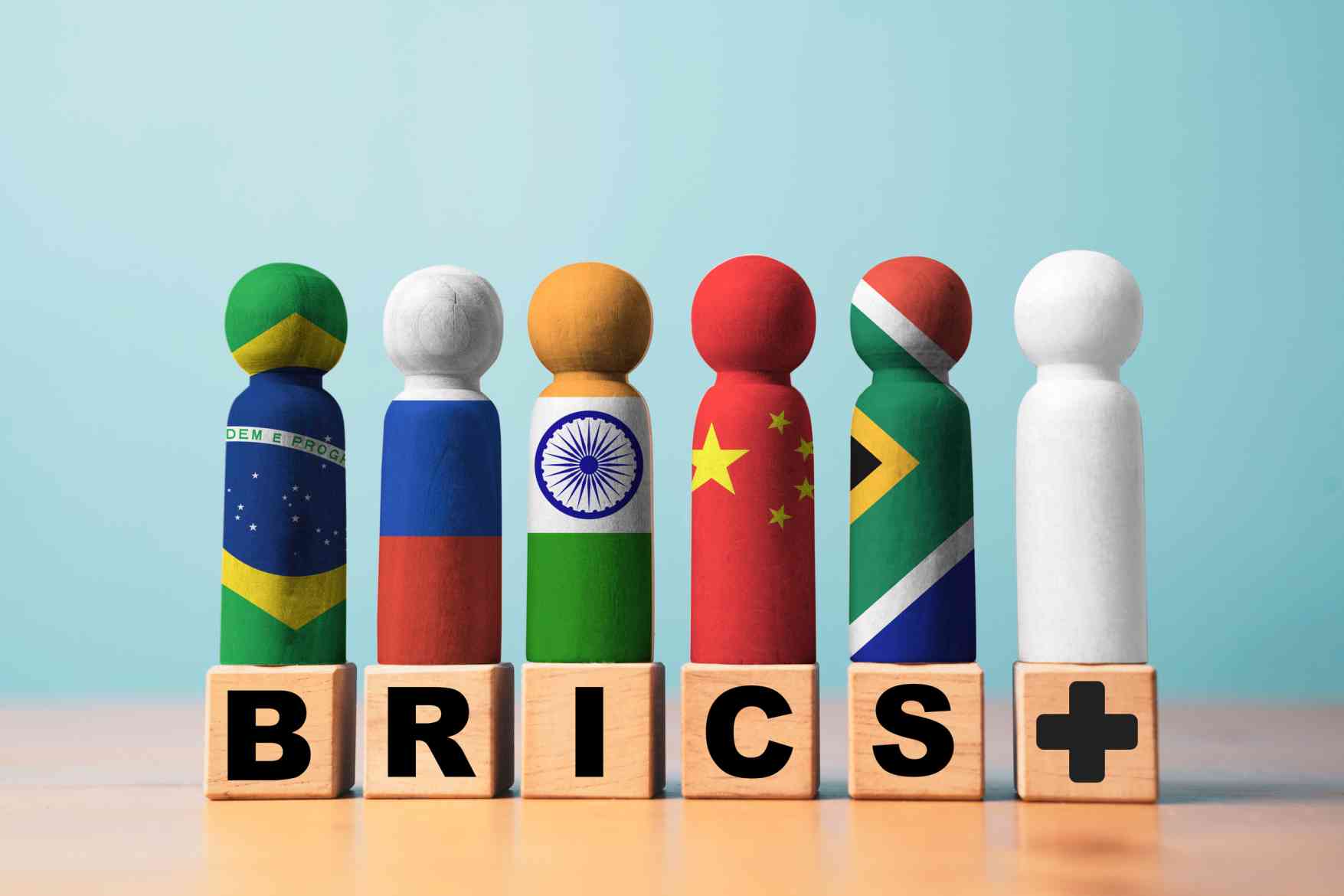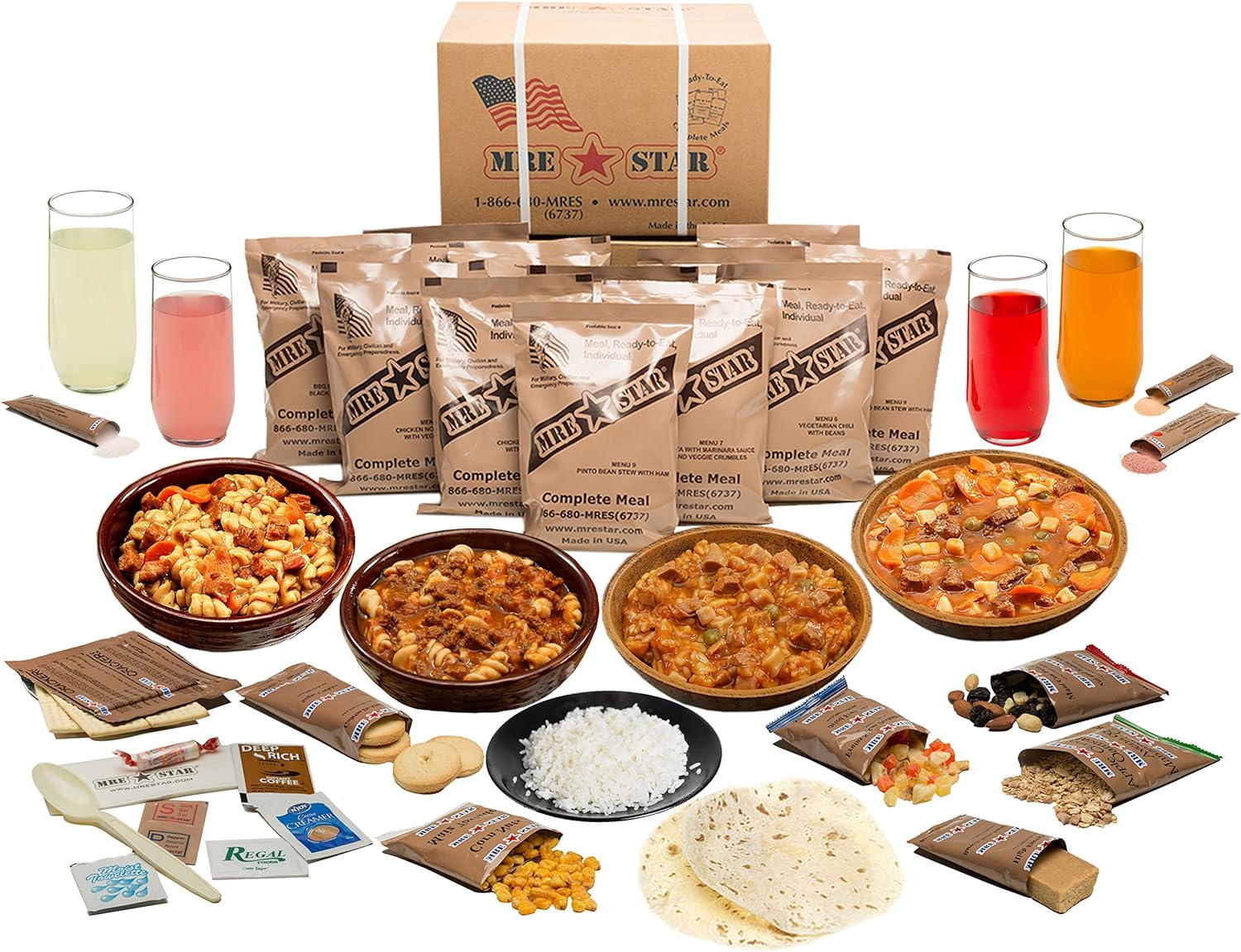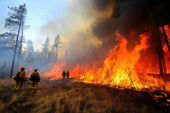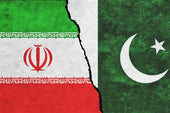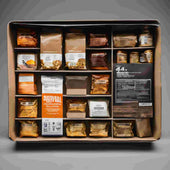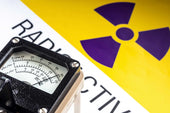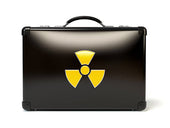Emerging Economies: Better Global Economic BRICS

The world is changing, and it's not just about natural disasters anymore.
We've been trained to keep an eye on hurricanes, blackouts, food shortages, maybe even civil unrest.
But now there's something bigger brewing in the background, and most people aren't even looking in that direction. Preppers should be.
You've probably heard the term BRICS floating around. It stands for Brazil, Russia, India, China, and South Africa.
These countries have been working together for years, trying to build their own economic system outside of Western control. Lately, though, something shifted.
They're inviting new members to the table. Countries like Iran, Saudi Arabia, and Egypt are joining in. And that's where things get serious.
It's not merely a matter of politics or commerce. BRICS is upending the world order, particularly the dominance of the U.S. dollar.
They're discussing swapping oil and other commodities without employing the dollar, potentially even devising their own collective currency.
If that's the case, the shock waves will impact everything—our economy, supply chains, savings, and the cost of essential goods.
We're preppers, so we think ahead. We're not preparing only for storms and blackouts but for the larger picture. If BRICS continues to build power, it may alter the way we live and prosper.
This article will break it all down. What BRICS is, what they're doing, and what it does to people like us who live on self-sufficiency, preparedness, and staying ahead of the mess.
If you're not viewing BRICS, you could be missing one of the largest global changes of our generation.
Understanding BRICS: The Basics
Origins and Purpose
To know why the BRICS bloc matters, let's start from the very beginning. At the beginning of the 2000s, the BRICS countries—Russia, Brazil, India, and China—became an unofficial group of states.
South Africa later joined them to create the initial five BRICS nations. They were not the typical powers of the world at the time, but they had something in common.
They were all emerging economies that needed a place at the table of world politics.
Their agenda was not that complicated. They sought to end Western nations' domination, particularly in international institutions like the World Bank and the International Monetary Fund.
These institutions dictate issues that concern developing nations, but developing nations have no say in the same. BRICS nations' leaders desired to reverse the equation and establish a more equitable world economy with more influence by the Global South.
Economic Supremacy
Flash forward to today, and the BRICS nation is anything but tiny. Combined, the BRICS nations have over 40 percent of the population of the entire world and over 25 percent of the world's GDP.
They argue that when it comes to measuring purchasing power parity, they are even more economically dominant than the G7 economies.
They're also blessed with what they require—oil, gold, exportables, and inputs to industry. That makes them an economic world leader.
Their joint ventures, like their development bank, demonstrate that they're going to construct real alternatives to the existing world financial system.
2020s Expansion and Objectives
Now the figure is increasing. Saudi Arabia, Iran, Egypt, and Argentina are keen to join BRICS. Thus, BRICS is getting stronger and is heading towards a multipolar world order.
Their ambition is great. The central banks of BRICS nations have even discussed creating a new reserve currency, one to supplant the U.S. dollar in international trade and South-South cooperation.
And if it works, it would overthrow the existing world economic order and trigger tectonic plate movements to the dynamics of how nations engage, do business, and weather economic storms.
This new, complicated motion is economic in nature but not economically strict. It's a motion of freedom and empowerment, circumventing tradition, towards global cooperation. And that is something that every prepper ought to be very close to.
Threat to the U.S. Dollar and Economic Fallout

The Petrodollar System Explained
For decades, the power of the U.S. dollar has been based on one big thing—oil. The majority of the world has been selling oil in U.S. dollars, a system called the petrodollar.
That arrangement provided America with serious global clout. As long as other nations required dollars to purchase oil, demand remained high. This allowed the U.S. to borrow cheaply, finance its economy, and remain the top dog in the world economy.
But here's the thing. The BRICS bloc is undermining that power. BRICS nations like Russia and China have already begun conducting energy transactions with each other in their own currencies.
The yuan and the ruble. If other nations join them, particularly newer BRICS members like Iran or Saudi Arabia, that's a big deal. It would mean less necessity for dollars, and less international economic influence for the United States.
BRICS Currency Proposal
Now take it a step further. There has been serious discussion among BRICS leaders and central bank governors to introduce a new currency altogether—one that would be backed by gold or a basket of commodities. Such a currency would be an alternative to the U.S. dollar for international trade.
The BRICS bloc has been working towards this quietly but steadily over the last decade.
If this BRICS currency takes hold, it will potentially replace the dollar as the reserve currency of the world. That's not bluffing coming out of a BRICS meeting.
It's something that can be real in this day and age's multipolar environment, where the Global South is ascending and international cooperation is diverging from Western nations.
Potential Consequences for Americans
If the U.S. dollar loses its status, it's not only a political issue. It hits home quickly. We might experience rising inflation, increased interest rates, and a blow to our purchasing power.
The cash in your bank account or retirement account could begin to depreciate. Fiat currency can grow vulnerable when global governance and global institutions begin looking to something new.
What This Means for Preppers
This is where preppers need to pay attention. A shift like this could lead to serious disruption in the global economy and the way financial systems work. Banks might limit withdrawals.
Credit could dry up. Inflation could spike. That's why now's the time to hedge your bets.
Invest in real stuff. Gold, silver, equipment, property, and long-term food stockpiles. Something tangible retains value even when fiat fails. The BRICS alliance is not merely bluster.
They are doing something. And for those of us observing global events with a survivalist mindset, this may prove to be the catalyst for altering everything.
It is better to prepare while there is still time than to panic when the dollar begins to decline.
Global Supply Chains & Resource Control

BRICS Supremacy Over Major Commodities
The BRICS partnership is not all about glitzy political summits or economic headlines. These BRICS nations hold important resources that drive the global economy.
Russia and Saudi Arabia are oil and gas giants. Brazil is a super-farming nation that feeds the world. China reigns supreme in the rare earth metal sector and is the world's top center for manufacturing.
South Africa is a treasure trove of minerals such as platinum and gold that are used in everything from electronics to renewable energy technology.
Combined, the BRICS bloc has a commanding position when it comes to what the world needs to operate. This places them above and beyond mere trading partners. It makes them gatekeepers.
The Risk of Trade Being Used as a Weapon
Now here is where it gets serious. When nations in control of supplies also determine recipients, trade loses its essence to be mere business.
It takes the shape of a leveragable tool. BRICS might start favoring one another to a larger degree and exclude the West if political tensions intensify.
We can already witness tendencies in this regard. Russia's 2022 fertilizer ban stirred a ripple through global agriculture.
China's 2020 lockdowns contributed significantly to the chip shortages that caused everything from automobiles to computers to be held up.
They are reminders that supply chains are delicate. International cooperation is all well and good until it falls apart.
Weak Points in Western Supply Chains
Nations such as the United States and those within the European Union depend greatly on the BRICS nations for vital commodities.
Fuel, food, electronic components, or fertilizer, and one disruption will send prices skyrocketing or lead to severe shortages.
The global economy is based on the belief that everything will always flow freely. But that is not always the case, particularly in a world moving toward multipolar power.
This is the reason why preppers must listen up. When BRICS nations opt to prioritize one another or leverage trade as a bargaining chip, shortages might occur quickly.
The intelligent decision is to develop individual supply chains that are strong and local. That is to say, stock food, fuel, and tools. Plant your own garden. Invest in solar power.
Master skills that operate without requiring anything online or high-tech. Think barter. Think community. Prepare to adjust if it slows or stops completely.
Geopolitical Risks and Global Tensions
The globe seems more polarized than ever. On one end, you have NATO and the Western nations such as the United States and the European Union.
On the other, you have the BRICS bloc with nations such as Brazil, Russia, India, China and South Africa. The BRICS nations are no longer concerned with economic development alone.
They are beginning to act in unison politically and militarily as well.
We are witnessing increasingly proxy wars erupting. Ukraine has become a flashpoint between Russia and the West. Taiwan may be next, with China closely watching.
This is no longer about national borders. It is about who controls the future global order. A new cold war is emerging right before our eyes.
Alliances and Defense Strategy Shifts
The BRICS nations are not fooling around. They have been developing closer military cooperation. The members of BRICS are conducting joint military exercises, exchanging defense technology such as hypersonic missiles and next-generation drones.
It is not simply a military bluff. It is a subtle message to the world that the global south is no longer holding back.
The multipolar world we're heading into means global governance is shifting. Countries in the global majority are demanding a new seat at the table.
The BRICS summit and the work of the BRICS central banks, development bank, and even the new development bank reflect this.
Cyber Threats and Grid Security
Another area that preppers should keep an eye on is the increase in cyber threats. Some of the BRICS nations possess very strong digital capabilities.
Cyberattacks could target everything from your bank account to the electrical grid. This is an actual threat. Just as you load up on food and water, you must consider how to safeguard your access to power and knowledge.
This is the time to prepare your home. Have some cash saved for when the cards won't function. A generator or solar backup is at hand. Water purification equipment. Offline maps.
A radio that does not require the internet. These are little things that can be significant if tensions overflow and interfere with usual life.
Long-Term Prepper Strategies in a BRICS-Dominated World
Look, things are moving very quickly. The BRICS bloc—Brazil, Russia, India, China, and South Africa—is no longer a phrase spoken at economic conferences only.
The BRICS nations are reconfiguring the world economy and stealing the initiative from Western organizations such as the World Bank and International Monetary Fund.
To us preppers, this means changing how we live, think, and prepare for a world where the BRICS alliance has more access.
Financial Diversification
To begin with, do not put all your faith in fiat currency. If the BRICS bloc introduces a new world reserve currency or rejects the dollar for trade, Western economies may take a sharp blow.
Spread your financial risk then. Stock up on precious metals such as gold and silver. Keep crypto securely in offline wallets, but only if you properly comprehend it.
And never forget the fundamentals—tradeable items like canned goods, tools, ammunition, soap, and fuel are worth more than money in a pinch.
Localization and Self-Reliance
The optimal prepper attitude is self-sufficiency. Begin cultivating your own food, even if it's just vegetables and herbs in containers. Harvest and save rainwater.
Install solar panels or backup generators. The BRICS countries, particularly China and Russia, are spending big on energy independence. We must do the same, but on an individual level.
Learn old-fashioned skills. Repairing things, producing things, and exchanging skills for products.
That's going to be more important than a resume if the global system changes and the global south gets to be the leading voice in global governance.
Alternative Communication Systems
The digital economy is breakable. We learned that during the global shutdowns, and it will probably happen again. What if the internet crashes or information gets controlled by the state?
Establish alternatives. Ham radios, CB radios, and mesh networks can keep you connected without relying on centralized systems. A prepper's communications can be the difference when things go wrong.
Security Preparedness
In a global world where interdependence grows weaker, security is a high concern. Consider reinforcing your home and homestead.
Consider alternative power and water systems, but also consider the protection of your loved ones. Situational awareness training should be a part of your daily routine.
The BRICS nations may not be fighting today, but they are establishing defense relationships. So, it's better to be prepared.
Community defense is also worth thinking about. Become active with local networks of mutual aid and defense. A close-knit community of people who can trust one another will keep everyone thriving if the world's systems start to become unstable.
Stay Ahead of the Curve
Watch for BRICS summits, trade deals, and any military movements. Their efforts toward a new world currency and emerging global economic dominance are only the tip of the iceberg.
Watch for how these actions are disrupting Western economies and how they could affect our daily lives.
Stay aware so you can change your plans early, before things boil over into actual disruptions.
Prepping isn't merely about survival equipment and food storage. It's about seeing the larger picture and putting yourself and your family in a position for whatever lies ahead in this changing world.

